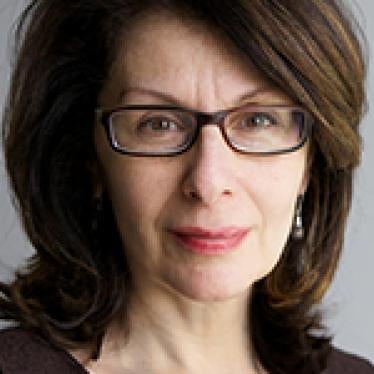Since Vladimir V. Putin's return to the Kremlin, the Russian parliament has rammed through a raft of laws tightening the screws on civil society, the government kicked out USAID, and opposition demonstrators are facing unwarranted criminal charges. But the crowning piece in this crackdown came on September 21, when the parliament adopted in first reading a new definition of treason that could criminalize all kinds of international advocacy.
The amendments, introduced by the FSB (the KGB's successor) and approved unanimously, would add to the definition of treason, the wording, "providing financial, technical, advisory or other assistance to a foreign state or international organization . . . directed against Russia's security, including its constitutional order, sovereignty, and territorial integrity."
This is a logical extension of a law adopted in July that made Russia's civil society groups that do advocacy work and accept foreign funding register as "foreign agents." That's the majority of them, since practically no Russian donor would want to risk supporting groups that do controversial work or criticize the Kremlin. If you don't register, you risk up to a two-year prison sentence.
Now, if this new proposed definition becomes law, as looks likely, even advocacy to promote change could land you in jail. The devil, of course, will be in the details.
But if the past years are any indication, we can expect Russian authorities to interpret the law very broadly. For years, the authorities and the courts have, for example, used other laws restricting expression, particularly those on "extremism," to crack down on dissent. The recent Pussy Riot case, in which the three members of the punk music group were put behind bars after a court stunningly distorted the law on hate crimes, was just one example.
The law would also open the way for the FSB to carry out surveillance on nongovernmental groups in the name of investigation - tapping phones, bugging offices and lodgings, with practically no time limitations. They'd be able to open a criminal case into alleged treason and use it to keep the Kremlin's adversaries under surveillance for years.
Many Russian nongovernmental groups--like their counterparts in other countries--meet frequently and openly with foreign officials to urge them to press Russia to adopt reforms or make human rights improvements. That is totally normal, standard practice.
But apparently to Putin's Russia, it is now intolerable. The hysterical anti-NGO, anti-foreigner government statements in recent months give some indication of just what kinds of actions would risk being viewed as directed against Russia's constitutional order. The government hasn't missed an opportunity to accuse demonstrators who took the streets this winter of being paid foreign agents. A cheap proto-"documentary" film on Russian state television tried to paint ordinary meetings of prominent opposition figures at the US Embassy as if it were an unseemly spy scandal. The authorities have thoroughly demonized Golos, an election monitoring group, willfully conflating the work it does to monitor the vote with alleged support for the opposition.
So any kind of advocacy with foreigners about the need for fair elections, the electoral process, or for example even the separation of powers and the need for an independent judiciary could be off limits. So would sharing information with the international community about abuses in the counter-insurgency campaign in the North Caucasus.
Indeed, if USAID hadn't been thrown out of Russia, its Russian staff could feasibly have been charged with treason under the new definition and in the current anti-foreigner hysteria the government has been whipping up.
I can't help but hear the faint but creepy echo of the old article 58 of the Soviet criminal code, which was commonly used against dissidents. Article 58 made offering assistance to the "international bourgeoisie" or being part of a public group that was "under the influence" of the bourgeoisie a treasonous offense.
I've spent a lot of time in recent months explaining that even with the nasty crackdown, the anti-foreigner vitriol, and the pervasive influence of the security services in Russia today, Putin's Russia cannot be compared to the Soviet Union. I still believe that to be true. But it's getting one step closer.
Rachel Denber is deputy Europe and Central Asia director at Human Rights Watch.







